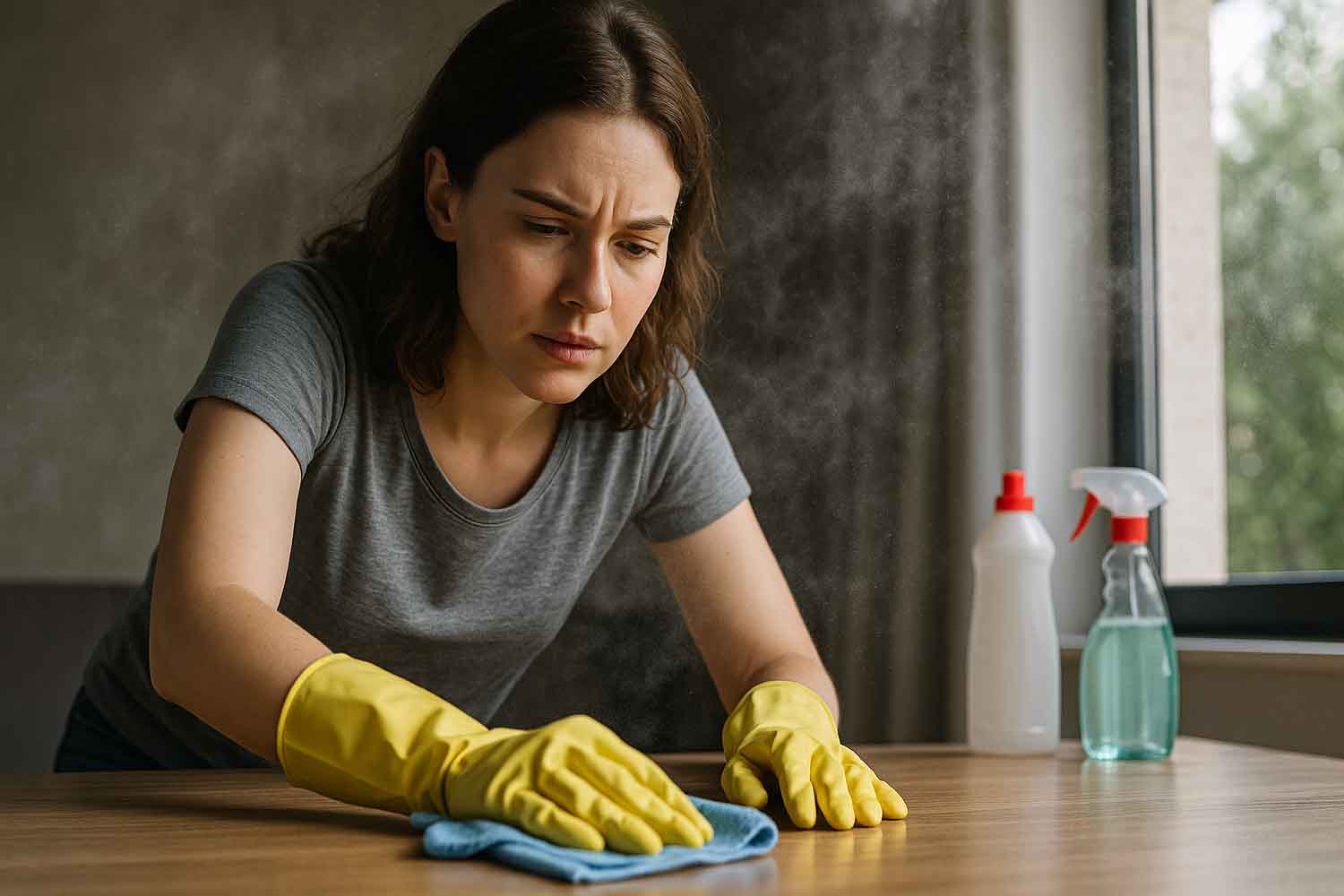A 20-year Norwegian study reveals that frequent cleaning, especially with sprays, can damage women’s lungs as much as smoking 20 cigarettes a day. Safer habits can cut the risk.

For many people, cleaning the house feels like one of life’s most ordinary routines. But for countless women, it may hide a risk that is far from ordinary: damage to the lungs comparable to smoking.
That startling conclusion comes from a long-term study by the University of Bergen in Norway. Researchers tracked more than 6,000 people over two decades, aiming to understand how frequent cleaning—at home or as part of a job—affects respiratory health.
The outcome was striking. Women who cleaned regularly, whether at home or professionally, experienced a decline in lung function equivalent to smoking a pack of 20 cigarettes a day. The exposure isn’t dramatic or immediate, but it builds silently, day after day, year after year.
Everyday sprays, lasting consequences
The Norwegian team pointed to cleaning products in spray form as a key culprit. Continuous exposure to these chemicals can trigger chronic inflammation in the airways and accelerate the aging of the lungs. Women appeared especially vulnerable, likely because they tend to spend more time using these products—both in domestic settings and in the workforce.
At the heart of the problem are ultra-fine particles released into the air when sprays are used. Invisible yet invasive, these particles can enter the respiratory system with every breath, gradually eroding pulmonary strength. Alongside reduced lung capacity, the study also noted an increased risk of asthma and other chronic respiratory conditions.
Cleaning without compromise
There is good news: small, conscious adjustments can dramatically reduce the risk. Experts suggest limiting sprays in favor of gentler methods. A simple microfiber cloth and water can clean effectively without releasing harmful substances. Ventilating rooms during and after cleaning helps clear residual chemicals. Steering clear of synthetic fragrances can also protect the airways, since many perfumes contain volatile compounds that irritate the lungs.
Eco-friendly or homemade products—think vinegar, baking soda, or lemon—offer another safe and effective alternative. These minor changes in routine may add up to major benefits for long-term health. After all, cleaning should be about caring for your home, not compromising your body.
Source: American Journal of Respiratory and Critical Care Medicine
